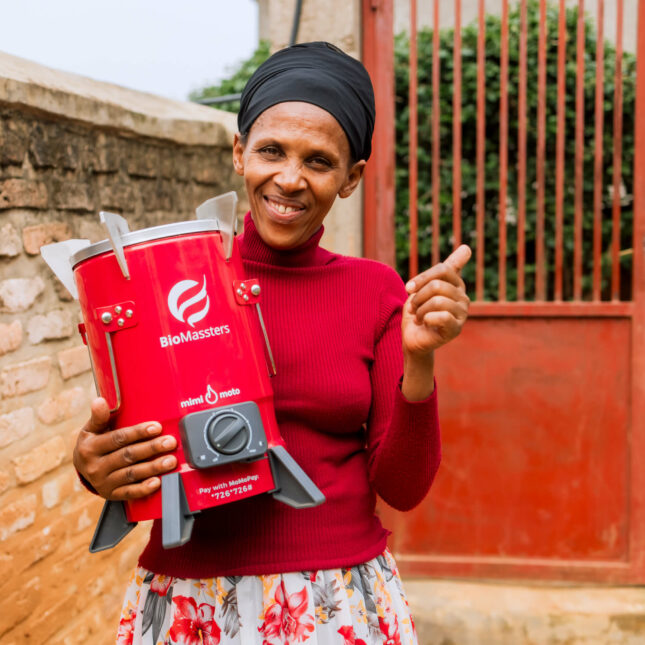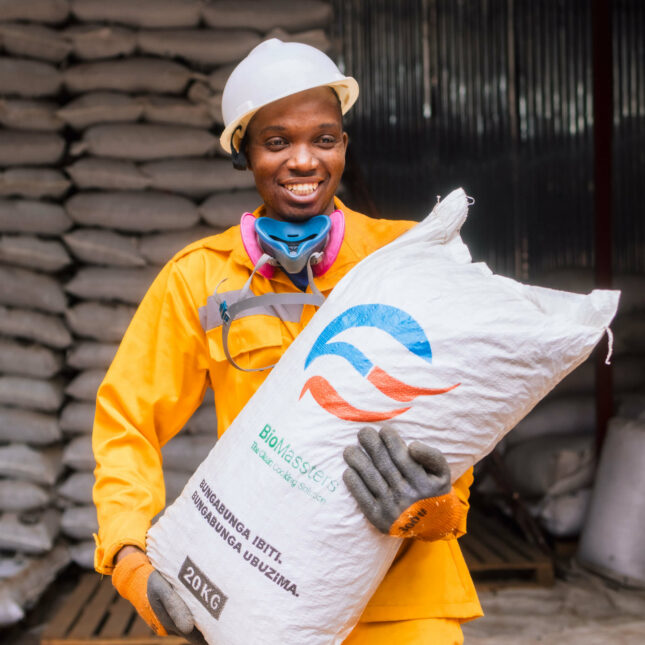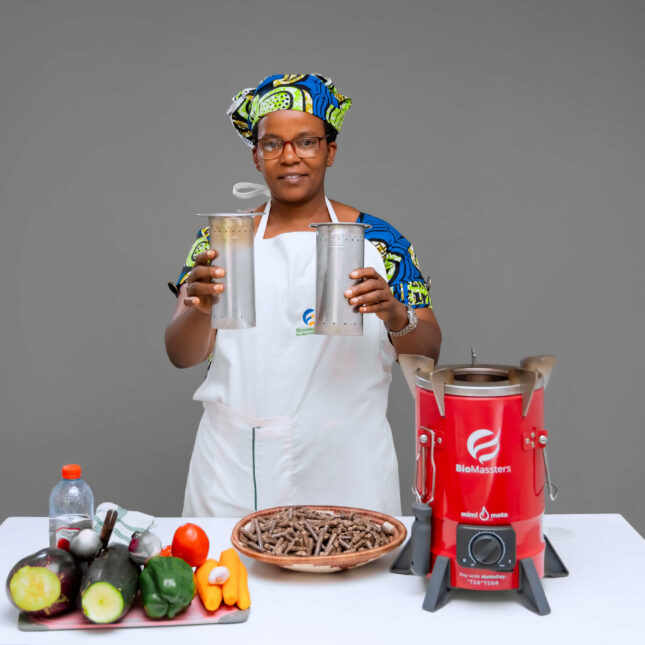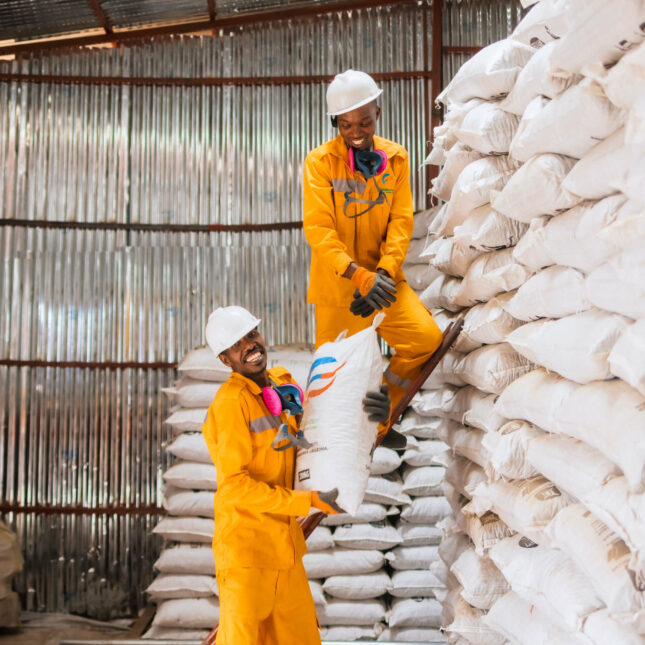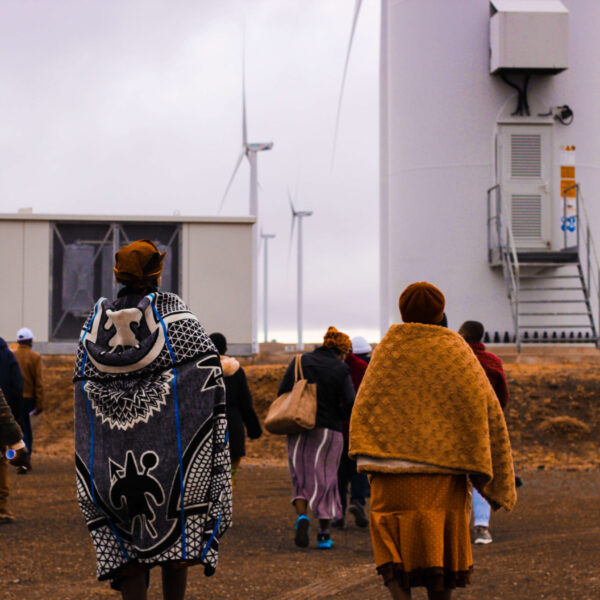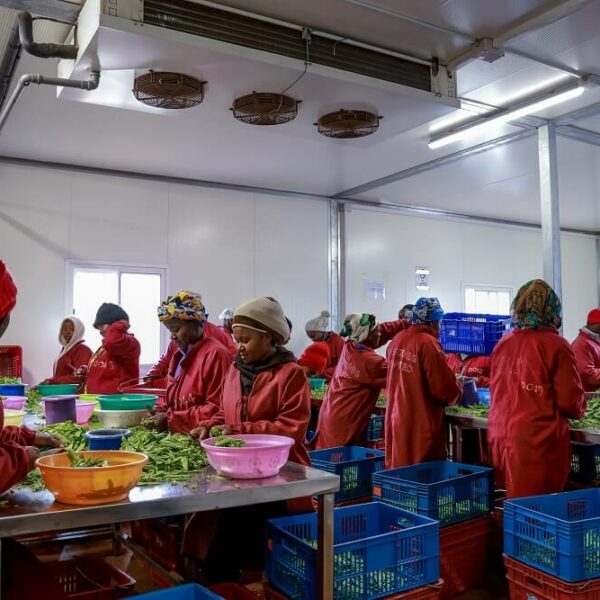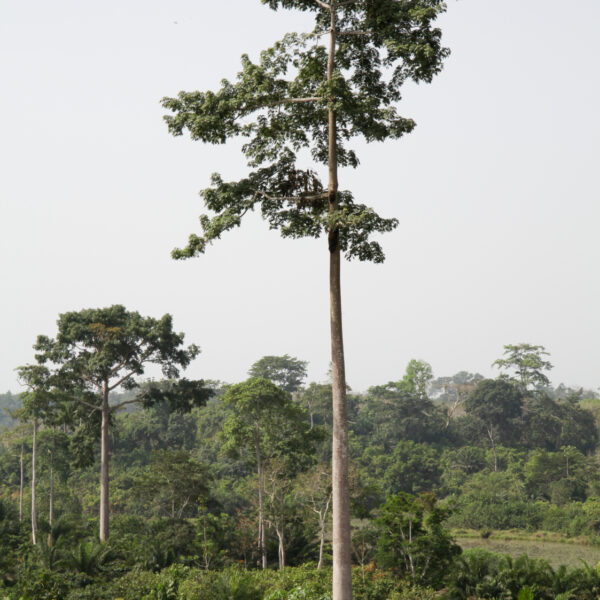A world-first stove earns accolades and carbon credits
Key figures
Expected results
A world-first stove earns accolades and carbon credits
About
More than 2 billion individuals globally rely on traditional wood sources such as charcoal or gathered wood for cooking. In Rwanda specifically, this dependence is stark, with 93% of households utilising such fuels. Beyond the considerable labour and money spent on these resources, there are environmental consequences, as cooking contributes to 40% of the nation’s air pollution, culminating in an estimated 7,000 premature fatalities annually.
BioMassters emerged in Rwanda in 2020 with a clear objective: to revolutionise cooking practices by offering a superior alternative to charcoal and gathered firewood by using biomass in the most efficient, clean and modern way possible. This alternative comes in the form of wood pellets, derived locally from the waste generated by activities like forest management, reforestation and furniture production. The company’s circular economic model can significantly curb emissions while reducing financial burdens on households at the same time. Crucially, the initiative also holds promise in mitigating health risks associated with air pollution, with the potential of saving lives through the promotion of cleaner air.
The overhaul of Rwandan cooking methods is central to the success of BioMassters’ mission. This transformation entails a departure from traditional methods, ushering in a new era marked by the introduction of the world’s first advanced tier-4 biomass gasification stove – developed by BioMassters’ partner Mimi Moto. Notably, the newest iteration of the stove is crafted within Rwanda itself, showcasing the company’s commitment to localised production, knowledge transfer, job creation and sustainable development. Driven by this tested and proven technology, the project has been endorsed as one of a handful of quality carbon-offsetting stove projects by researchers at the University of California, Berkeley.
Our support
Even with its advanced technology, BioMassters focuses its business model on the ongoing sales of fuel pellets to customers rather than the one-off sale of cookstoves. Given the up-front cost of manufacturing and installing stoves, this ‘tool and fuel’ model is capital intensive and not easy to get off the ground. Facing the challenge of securing seed investment, BioMassters reached out to GET.invest for support.
From the outset, advisors from the GET.invest Finance Catalyst were able to review and support with updating the company’s financial model, including by undertaking a valuation analysis. They then introduced BioMassters to its debt partner Charm Impact, which has since provided three loans, enabling €400,000 of investment. Going further, the advisors were by BioMassters’ side in creating an innovative carbon credit collaboration with FairClimateFund, offering guidance on the terms of the collaboration based on market insights.
By linking up with carbon credits, BioMassters could transition its business model from a pay-as-you-go approach to subsidising stove costs with carbon revenue and pellet margins. This shift has allowed the company to offer customers an affordable up-front price for its stoves. Moreover, BioMassters’ project is pioneering the integration of cash paybacks to end customers as part of a carbon credit initiative, made possible through its Gold Standard-certified partnership with FairClimateFund.
The outcome
Since partnering with GET.invest, BioMassters has achieved significant milestones. The company successfully completed its proof of concept and secured a second carbon credit sales transaction, now totalling €300,000 through FairClimateFund. Additionally, it has obtained multiple grants facilitating the rollout of its stove model. In the past 12 months, BioMassters has secured around €1,000,000 in funding, and the company is currently amid a pre-Series A funding round aiming to raise €2.6 million, with a clear path to profitability.
With a workforce now exceeding 50 employees in green jobs, BioMassters is gearing up for expansion, including the establishment of a second pellet factory. Notably, the company is playing a pivotal role in an impact cluster funded by the Netherlands Enterprise Agency (RVO) called Partners in Pellets.
Central to BioMassters’ philosophy is the belief that carbon revenue should directly benefit the individuals utilising the stoves and thereby generating the credits. Consequently, for every 100 kilograms of pellets purchased, customers receive a mobile money payment of approximately €2. This initiative not only provides financial incentives but also raises awareness about transitioning to greener cooking technologies across Rwanda.
Disclaimer: This story was last updated in September 2024.



